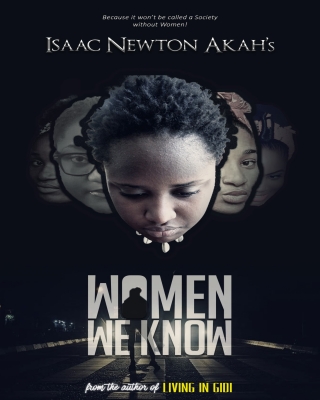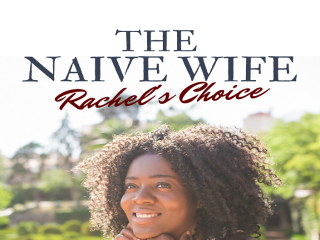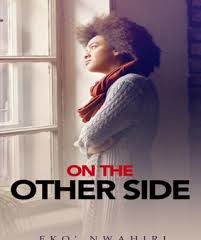Features
#LiterallyWhatsHot: The Stories of Six Powerful Women, Each Compelling and Intense – A Review of Isaac Newton Akah’s “Women We Know”
 Morning. I have just finished my first reading of Isaac Newton Akah’s “Women We Know”, and I am on my chair, seat reclined, gazing up at the ceiling.
Morning. I have just finished my first reading of Isaac Newton Akah’s “Women We Know”, and I am on my chair, seat reclined, gazing up at the ceiling.
Who would have thought that within these pages would be a wealth of storytelling so masterfully delivered? Who would have guessed that behind the bland title would be the stories of six powerful women, each compelling and intense, and yet as uniquely different as they are all equally excellent?
I am enthralled by the story of Onome and Priscilla, two victims of situations and circumstances that kill women daily, victims of a system that fails horribly to acknowledge females as people. I see women who, though married, remain insecure and worried, simply because they have no male child. I look out the window at children going to school, and I wonder which of them is an Ijeoma, a misfit who is ostracized for being different, victimized for refusal to acquiesce to the request of a teacher, family friend, neighbor, boss, or colleague. An Ijeoma who is, to their predatory eyes, merely a vagina with legs and hands, something sub-human, with no feelings worth considering.
I look left and right, and I feel a kinship with Jumoke, a writer and content creator who is broke and at her wits end, until her repeated posts on social media yield some unexpected fruit. I think of the vast crop of people plying their talent on social media, uncaring about audiences, content only to hope, to pray, to dream that someday something comes of this passion for the arts that unemployment has driven them to find, because dreams come true for those who hope and to live without hope, one may as well be dead.
I think of Isabelia, finder and loser of treasures, and of her beloved husband, and the snake he called a friend, and I shake my head. I remember the schemes and machinations of people I know, planning to “mess up” so and so girl, because “she be like who go get pride well-well”, and I realize that I myself have been quick and unfair in my judging and assessment of women. I think of the danger in the singularity of stories peddled about womanhood, women, and the female mind, and I pray to god, any god, every god, that society is kind to my daughters.
I read with humility, my face bowed in shame, as I look at the story of Ngozi, and how I almost unconsciously wanted to side with her husband, before I remembered common sense and my own upbringing. I recall my mother sitting patiently in the kitchen, watching me cook, and flop sometimes, till I got better and better, needing less and less supervision. I think of people I know, many men who are victims of patriarchy, who have succumbed to the lie that the man is ever strong, that there is something unmanly about caring, cooking, or crying.
I think of Laila, and in her I see all the girls who turned me down when I asked them out, girls who wanted to be friends and not get sexual for a variety of reasons, some known, some unknown. I see my female friends, and the burdens they carry around daily, the pressure they face from society, from family, from friends. Pressure to be somebody’s lover, wife, girlfriend. I thank God for the women I call friends, who taught me early enough that sometimes it is okay to just be human, to exist, to live. I think of my female friends who run from relationships for various reasons, and I realize that it is valid to just be human, that the fact of being in a relationship is not a validation of anything. I think of these women, women I could easily have walked by on the street, or stood behind in a queue, or purchased something from across a counter. We are all human, and we all exist. Human. Valid. Whole. Alive. Approaching life at our own individual paces.
With this book, Mr. Akah has set things in motion to school an entire generation. I wish I could print the book for him, for a project like this deserves to be read by all and sundry. But I content myself with buying it here on OkadaBooks, and if my opinion is anything to go by, dear reader, you MUST buy this book. Three copies, one for yourself, one for that odious judgemental male you know, and one for a woman you know. That will be doing your bit to change society. For the better. For our daughters.
You can get a copy of the “Women We Know” on Okadabooks. Click here.
**

Eye Kay Nwaogu is a writer, born in Nigeria, brought up all over the place, and chasing his dreams. He writes nonfiction, book and music reviews. But when he is writing fiction, his heart sings loudest. He is a lover of travel and food, and when he is not writing, he is seriously thinking of what to write, or read.






















